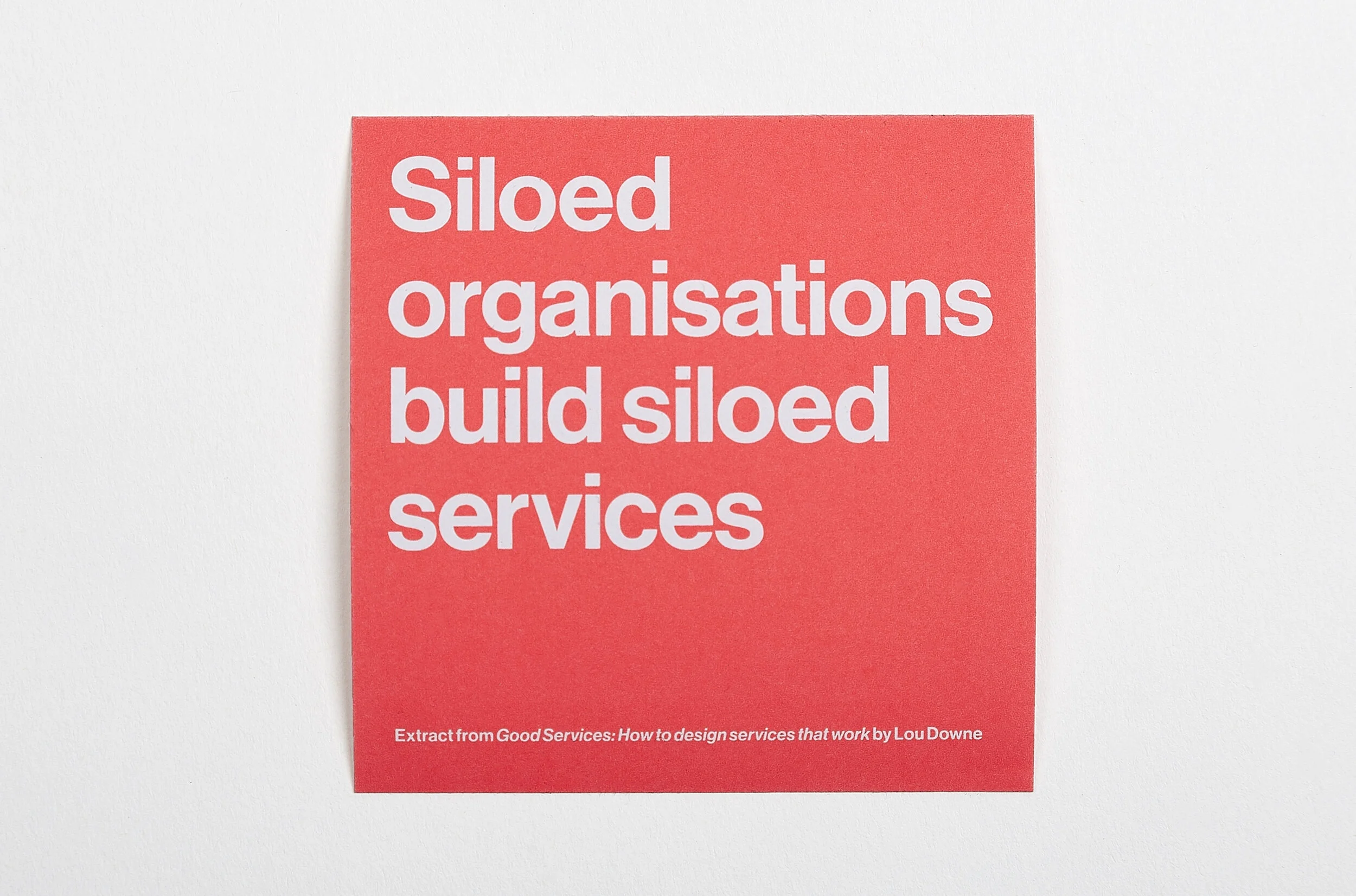15 principles of Good Service Design
7. Be agnostic of organisational structures
The service must work in a way that does not unnecessarily expose a user to the internal structures of the organisation providing the service
What this means in practice
The structure of the organisation(s) providing the service aren't visible to the user when using the service. There are no delays or barriers to a user reaching their goal that were caused by the structures of the organisation(s) providing the service
You’ve achieved good this when
A user is able to achieve the outcome they set out to do without having to become aware of or negotiate the links between separate organisations, data or structures themselves
How to do it
Recognise the potential silos in your organisation – or with other organisations that might be providing parts of the same service. Ask yourself, are there any areas where there is a separation of data, incompatible processes, incompatible criteria of use, or inconsistent language in your service that’s been caused by the fact that your service is provided by different entities?
Siloed organisations produce siloed services: if you can’t change your operating model, change the way you communicate and collaborate
Consider introducing things that create a permissive environment for collaboration, like shared standards, goals and incentives, to help people work together


